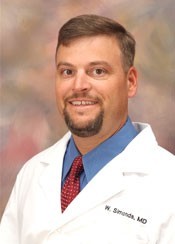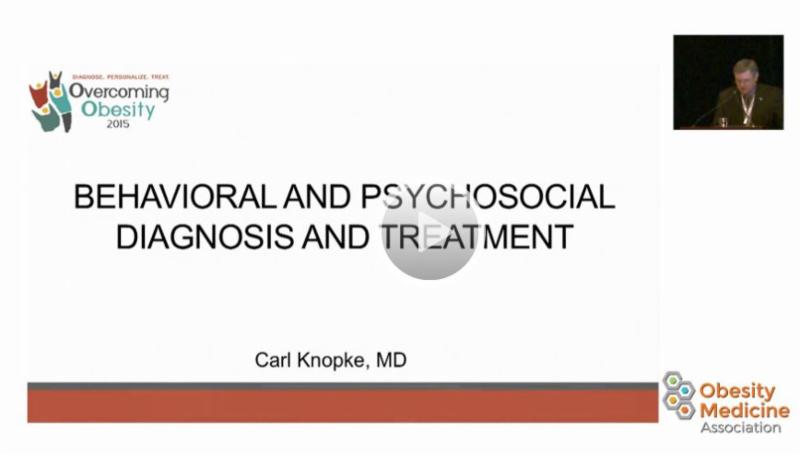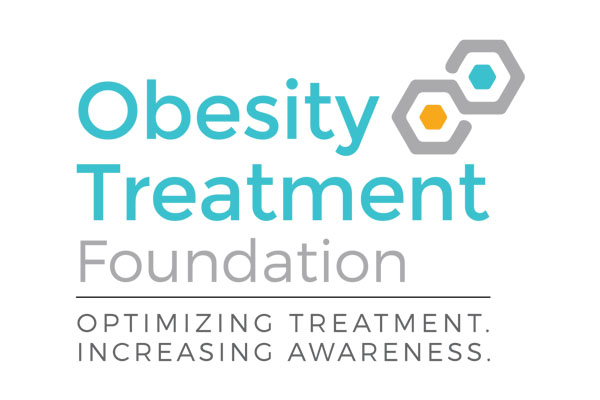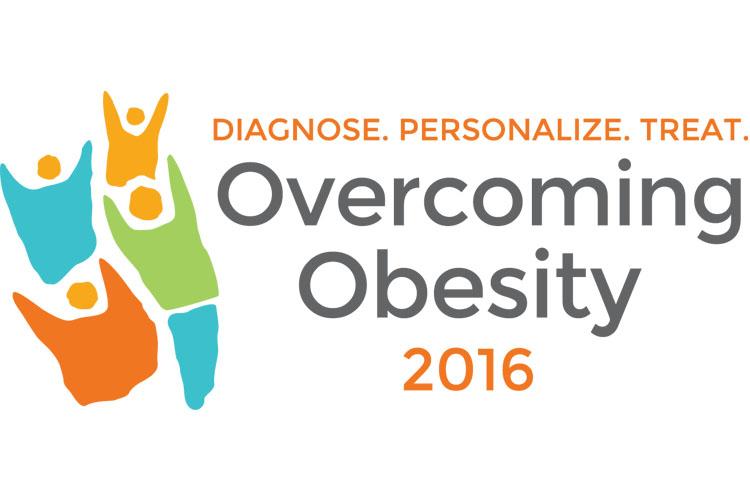Support Advanced Practitioners Memberships and Conference Registration
OMA member Dr. Wickham Simonds employs several nurse practitioners, physician assistants, registered dietitians, and a registered nurse in his obesity medicine practice. He and Michelle Kennedy, one of the nurse practitioners who works in his practice, share why they are involved with OMA and why Dr. Simonds pays for his employees to be OMA members and attend educational events.
 Michelle Kennedy, NP-C: Michelle Kennedy, NP-C:The benefits of being an associate member have been invaluable for my professional development and growth as a member of our health care team. Membership and conference attendance is one of the most valuable benefits that Dr. Simonds provides his nurse practitioners, physician assistants, and registered dietitians. Having this privilege gives us extra incentive to stay connected with the obesity medicine community and stay up to date on current evidence in our field. Dr. Simonds appreciates the dynamic role each of us plays in the practice and emphasizes the importance of active involvement and continuing education. Having multidisciplinary members in health care organizations such as the OMA is absolutely necessary for optimizing health care delivery to our patients. For many non-physician health care practitioners, membership, conference, and travel fees can be cost prohibitive.  Wickham Simonds, MD: Wickham Simonds, MD:I consider membership in OMA, networking with other providers, and the great education that OMA provides a cornerstone to the success of my practice. It has played an invaluable role in developing my staff of NPs and PAs, as well as the rest of the clinical staff, into seasoned obesity medicine experts. It has been worth more than the money I have invested in it.
As a result, my clinical staff has become a group of seasoned obesity medicine experts. As a team, we take on all sorts of patient cases that range medically, from straight-forward to very complex, and we get great results.
The end result for me has been patients getting better obesity care than they can get anywhere else. This has led to practice growth, as well as "freeing up" of some of my time to do other tasks because the other providers can handle any kind of patient case. It has also led to satisfaction and confidence on my part, and on the part of the clinical staff, that we are mastering a field of medicine that very few other providers around the nation are.
If you have nurse practitioners, physician assistants, or other clinical staff members in your practice, I highly encourage that as part of their benefits package, you pay for their OMA membership, and provide a stipend for attending OMA's live educational events. This will be an investment for you that will more than pay for itself.
|
 |

Teach Your Patients to Avoid Over-buying in Grocery Stores
The Center for Science in the Public Interest (CSPI) maintains a webpage calling attention to some of the ways - including product displays, store layout, and in-store promotional items - grocery stores and supermarkets encourage customers to buy more food (often junk foods in particular). CSPI invites you to visit the page to view the articles and share them on your own social media channels and blogs. Visit the website. |

Featured Bundle: Behavioral Strategies for Treating Obesity
|
|
|
|
Executive Director
Sponsorships and Exhibits Manager
Operations Manager
Education Coordinator
Executive Director of the Obesity Treatment Foundation
|
|
101 University Blvd.,
Suite 330
Denver, CO 80206
|
|
|
Obesity Treatment Foundation
|
 Apply for a Position on the Foundation's Board of Directors Apply for a Position on the Foundation's Board of Directors
|
 |

Treat and Reduce Obesity Act Highlighted During House Committee Hearing on Legislation to Improve and Sustain the Medicare Program
On June 8, the House Ways and Means Health Subcommittee held a public hearing on legislation to improve and sustain the Medicare program, to provide a public platform for any and all interested members of Congress to discuss bills they have introduced that modify the way health care is accessed and delivered to the more than 55 million seniors who rely on the Medicare program. Representative Erik Paulsen (R-MN) spoke about the Treat and Reduce Obesity Act (TROA), emphasizing the seriousness of the obesity epidemic and explaining how the TROA can help improve overall health of Americans.
|
 |
Association of Pharmacological Treatments for Obesity with Weight Loss and Adverse Events: A Systematic Review and Meta-analysis
Rohan Khera, et al. JAMA, 2016.
A meta-analysis was conducted to compare weight loss and adverse events among five different anti-obesity medications. Twenty-eight randomized clinical trials with 29,018 patients (age, 46 years; 74% women; baseline body weight, 100.5 kg; baseline BMI, 36.1) were included. Orlistat, lorcaserin, naltrexone-bupropion, phentermine-topiramate, and liraglutide were all shown to be associated with achieving at least 5% weight loss at one year. Compared with placebo, liraglutide and naltrexone-bupropion were associated with the highest odds of adverse event-related treatment discontinuation. Phentermine-topiramate and liraglutide were associated with the highest odds of achieving at least 5% weight loss. View article
|
Adverse Associations of Car Time with Markers of Cardio-metabolic Risk
Takemi Sugiyama, et al. Preventive Medicine, 2016.
Time spent in cars was analyzed to see if it related to obesity and metabolic risk. Participants (n=2800), ages 34-65, self-reported time spent in cars, and they were categorized into four groups: less than 15 minutes per day; 15 to 30 minutes per day; 30 to 60 minutes per day; and greater than 60 minutes per day. Results showed that compared to spending 15 minutes per day or less in cars, spending more than one hour per day in cars was associated with higher BMI, waist circumference, fasting plasma glucose, and overall cardio-metabolic risk, after adjusting for socio-demographic attributes and leisure-time physical activity and dietary intake. Car time was found to be associated with higher BMI in men only. These data suggest that minimizing the amount of time spent in cars, independent of other health-related behaviors, is likely to be beneficial for metabolic risk. View article
|
Rare Genetic Forms of Obesity: Clinical Approach and Current Treatments in 2016
Huvenne H., et al. Obesity Facts, 2016.
Genetic forms of obesity are important to diagnose because they need specific management and a multidisciplinary team set-up as soon as possible. This review article discusses new treatments that have recently emerged, particularly for Prader-Willi Syndrome and mutations of the leptin/melanocortin pathway. These treatments could change the prognosis for these rare severe forms of obesity; however, causal therapy is not available for most forms of obesity. Understanding the genetic mechanisms of obesity may help clinicians identify new avenues for treatment for more common forms of obesity and improve overall care of patients with obesity. View article
|
 |

Overcoming Obesity 2016: Chicago, Sept. 21-25
Overcoming Obesity 2016 is your primary source for clinical obesity education. This fall we're offering the Review Course for the ABOM Exam -- the course preferred by physicians to help them prepare for the obesity medicine certification exam -- and the Fall Obesity Summit, which contains an all-new lineup of topics and speakers. Overcoming Obesity 2016 takes place in Chicago on Sept. 21-25. Register online now! |
Review Course for the ABOM Exam
13 CME/CE | Sept. 21-22
Helps prepare those planning to take the American Board of Obesity Medicine (ABOM) certification exam.
| Fall Obesity Summit
17 CME/CE | Sept. 23-25
Addresses topics related to the clinical treatment of obesity and obesity-related conditions.
|
|

Obesity Medicine Basics
Obesity Medicine Basics returns this summer to four cities around the country. This introductory-level course is an opportunity for us to spread the word about obesity medicine to providers in a primary care setting. As a member of OMA, you can earn rewards by referring others to attend Obesity Medicine Basics. Your efforts referring your colleagues to this course will help grow the field of obesity medicine and increase the number of health care professionals with a basic understanding of how to treat obesity. Upcoming Courses: |
|
|
|
The Obesity Medicine Association and the Obesity Treatment Foundation thank our 2016 Corporate Advisory Council members for their continuous support.
|
© 2016 Obesity Medicine Association. All rights reserved. Materials may not be reproduced, redistributed or translated without written permission. Advertising disclaimer: Under a policy approved by the OMA executive committee and exhibitor/advertiser review committee, commercial companies may apply to advertise in OMA publications. Approval does not imply endorsement or official recognition of particular products or services.
|
|
|
|